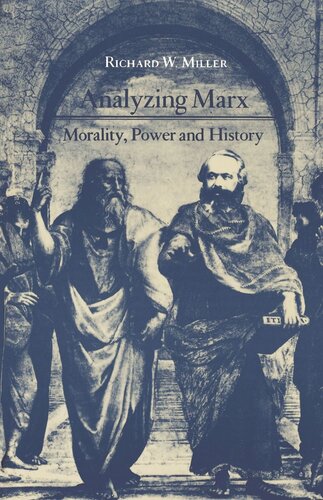

Most ebook files are in PDF format, so you can easily read them using various software such as Foxit Reader or directly on the Google Chrome browser.
Some ebook files are released by publishers in other formats such as .awz, .mobi, .epub, .fb2, etc. You may need to install specific software to read these formats on mobile/PC, such as Calibre.
Please read the tutorial at this link: https://ebookbell.com/faq
We offer FREE conversion to the popular formats you request; however, this may take some time. Therefore, right after payment, please email us, and we will try to provide the service as quickly as possible.
For some exceptional file formats or broken links (if any), please refrain from opening any disputes. Instead, email us first, and we will try to assist within a maximum of 6 hours.
EbookBell Team

4.8
104 reviewsIn this book Marx is revealed as a powerful contributor
to the debates that now dominate philosophy
and political theory. Using the techniques of analytic
philosophy to unite Marx's general statements with
his practice as historian and activist, Richard W. Miller
derives important arguments about the rational basis
of morality, the nature of power, and the logic of testing
and explanation. The book also makes Marx's theory
of change useful for current social science, by replacing
economic determinist readings with a new
interpretation in which systems of power relations are
the basis of change.
Part One discusses Marx's criticisms of the moral
point of view as a basis for social choice. The outlook
that emerges is humane but antimoral. Part Two argues
that Marx's concept of the ruling class is a means,
of measuring political power that is ignored yet urgently
needed by present-day social science. Part
Three bases Marx's theory of history on the
dynamics of power, challenging both the standard,
economic determinist readings of the
theory and standard conceptions of science.